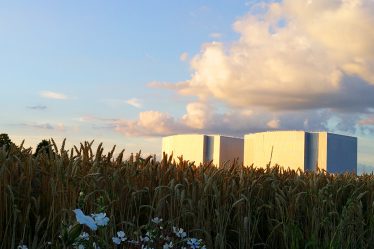
Bradwell B Nuclear Power Station: a source of Air Pollution
Did you know, the average person breathes in the equivalent of 13 pints of air every minute and takes 17,000 breaths per day?
The air we breathe is made up of almost 79% nitrogen, 21% oxygen, and small amounts of elements like helium, carbon dioxide, and hydrogen.
But when that air is contaminated with pollution, our bodies just can’t function they way they’re designed to, leading to ill health.
Among the worst airborne toxins are a form of persistent organic pollutant compounds called polycyclic aromatic hydrocarbons (PAHs).
PAHs are formed as byproducts of combustion and are constituent of diesel exhaust.
PAHs are classed as carcinogenic [1] and the health concerns about diesel exhaust relate not only to cancer, but also to other health problems such as lung and heart diseases.
HGV traffic release toxic PAH emissions which are a known human carginogen.
The most common vehicles that would flood our roads as parts of the power station build would be diesel-run 26-28ft HGVs with a high PAH output. In addition to the PAH emissions, these vehicles release 782 grams of CO2 per kilometre at 50 mph (80 km/h), contributing to world-wide carbon overload and global warming. [2]
The 12-year construction of the proposed nuclear power station will have a devastating impact on the air quality in the Dengie. The Bradwell B consultation documents cite anticipated HGV traffic of 1,400 journeys per day to and from the construction site. This would lead to an increase in PAHs, negatively affecting the health of all Dengie residents, especially the most vulnerable members of our communities.
Air pollution from increased traffic will have a damaging impact on the health of the residents of towns and villages along the transport routes, while construction itself will significantly add to the pollution load from this project.
The negative outcomes of exposure to air pollution are:
- Respiratory and cardiovascular disease
- Fatigue and headaches
- Irritation to eyes, nose and throat
- Harm bodily organs and the nervous system
- Birth defects and harm to unborn babies
Consequently, pollution creates and exacerbates emotional stress which impacts mental health and well-being.
Construction activities themselves will bring additional pollution increasing harmful dusts, in the air which can travel large distances over a long period of time. These include silica, cement, concrete and stone dusts forming particulate matter (PM) which we breath in. In addition, site transport vehicles and large earth moving equipment also run on diesel and would add to the diesel pollution throughout the Dengie and across the Blackwater into Mersey Island.
Air pollution is thought to reduce life expectancy by 2.9 years, and accounts for 8.8 million deaths per year, more than are caused by malaria, HIV, war and tobacco [5].
Bradwell is currently a site of relaxation and well being
Conversely, the happiness and relaxation proffered by the area not only create a better quality of life, but also an extension of life, with studies showing a 3.7% reduction in early death among happier, more relaxed people [4]. A well-know study showed that those who were happiest at 22 were 2.5 more likely to still be alive six decades later.
Bradwell BAN believe that the peace and purity of Bradwell are critical to the health and wellbeing of our local communities.
As well as offering a peaceful environment to residents, Bradwell also offers many visitors respite and relaxation, either in their own personal pilgrimage to the chapel and beach, or seeking restorative solace at The Othona Community.
Bradwell is a popular destination for bird watching, beach yoga, sailing, fishing and cycling – all activities that bolster happiness, health and well being.
Bradwell currently offers a unique space for residents and visitors to “un-plug” and unwind, with hikes along the remote seawall paths, contemplation in the chapel, and cherished time with loved ones on the beach – all vitally conducive to health and well-being, and delivering these benefits:
- Lowering heart rate and blood pressure
- Reducing muscle tension and chronic pain
- Improving concentration and mood
- Improving sleep quality
- Better energy levels and feelings of confidence
- Improved immunity
The construction of the power station will extirpate the peace that Bradwell currently offers. The power station’s presence will ravage tranquility of our communities, driving up stress and depriving residents and visitors of life-enhancing restorative space that it currently provides.
Bradwell currently offers a place of restoration, leisure and other health gaining activities for families, sports enthusiasts and nature lovers across the county and beyond.
This raises the question of whether the number of jobs the power station construction might bring, or the watts of power it stands to generate over the course of its limited lifespan, are really worth the cost to the health and longevity of our communities.

[2] https://www.gov.uk/government/publications/road-vehicle-emission-factors-2009


